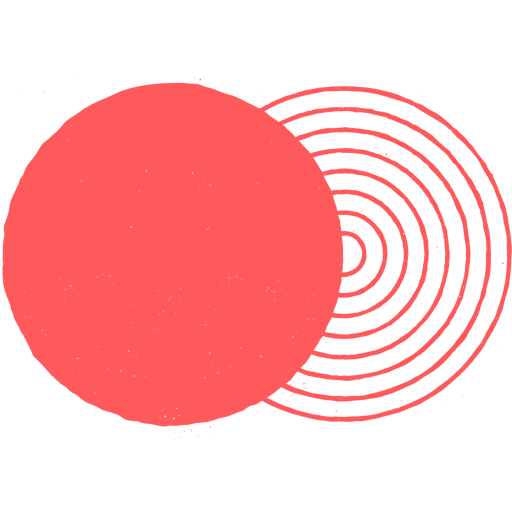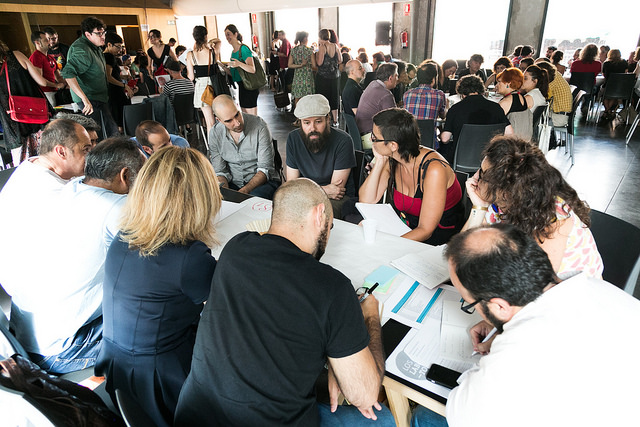Third session of «Labs», devoted to the nature and structure of Madrid’s cultural ecosystem. This Lab is structured into two complementary parts: the first day, based on various work groups, which is open for participation and includes stakeholders, municipal experts, institutions and guest participants; and the second day, which entails a public meeting open to all citizens where the initial proposal and the results of the different work groups will be presented.
The “Labs” are a forum for participation in our city’s public cultural policies and institutions, focusing on dialogue and collective work among cultural stakeholders, municipal authorities and citizens. The third session will focus on working towards the creation of proposals regarding the city’s ecosystem of cultural entities and the relationships of the stakeholders that comprise it.
A large number of cultural institutions and infrastructures can be found throughout the city of Madrid. Museums, libraries, theatres, exhibition halls, cultural centres, self-managed social centres and citizen initiatives of varying natures comprise one of the city’s greatest assets and sources of potential.
But what is the nature of the city formed by Madrid’s various cultural entities? What sort of relationships exist between this web of cultural stakeholders in the city? How do the city’s leading cultural centres interact with each other and with the various entities at the district level? How do the different public bodies work together? How do institutions interact with citizen initiatives? How can we carry out projects that link spheres like culture, education, research and entrepreneurship together?
In short, what policies and actions could promote better usage of the public and private resources that exist in the city, and activate all of the potential in the culturally open and diverse city that we want to be? What is the nature of Madrid’s cultural ecosystem, and how is it structured?
Madrid City Council’s Department of Culture and Sport intends to cover all of these questions as topics in Lab 3, which will be held on 20 and 21 July at Medialab Prado. The aim is to work towards the production of proposals regarding the ecosystem of the city’s cultural entities; the functions and relationships of the stakeholders that comprise it; the various macro and micro issues that affect it; in addition to the possibilities for developing Madrid as a city and community space/network for meeting, listening and co-production.
Day 1 - Work Groups - 20 July. 5pm to 9pm
The first day of the Lab is aimed at the cultural fabric of the city of Madrid, and invites participation (with prior registration) by institutions, municipal experts, sectors and their various representative bodies as well as stakeholders and individual artists. The session will look at the structure of cultural centres, their frameworks of interaction and governance, transdisciplinary and interinstitutional connections as well the visibility of other cultural spaces that make up the ecosystem of Madrid as a city for open culture.
For this session, participants are recommended to consult the following document: Acercamiento al ecosistema madrileño («A Close-Up Look at Madrid’s Ecosystem», in Spanish) and the Guía para participar («Participation Guide», in Spanish).
Prior registration required: FORM CLOSED
Maximum capacity of 120 people
Day 2 - Public Meeting - 21 July. 6pm to 9pm
The second part of the Lab is designed as a public meeting whose aim is to present the general prototype resulting from the work carried out by the groups on the first day. The session will feature an introduction to the concept of a “Cultural Ecosystem” by Jaron Rowan, Cultural Coordinator of the Art Department at BAU Design College of Barcelona, before proceeding in the form of an open discussion with the stakeholders taking part in the workshop. The objective of this meeting is to attempt to produce a shared account – constructed with the essential contribution of the fabric involved – of how we envision Madrid’s cultural ecosystem, offering an overview and enabling a holistic diagnostic analysis of this ecosystem.
This second part is aimed at all interested parties, and prior registration is not required (free admission until full capacity is reached).
Streaming at www.medialab-prado.es . See video of session below.

